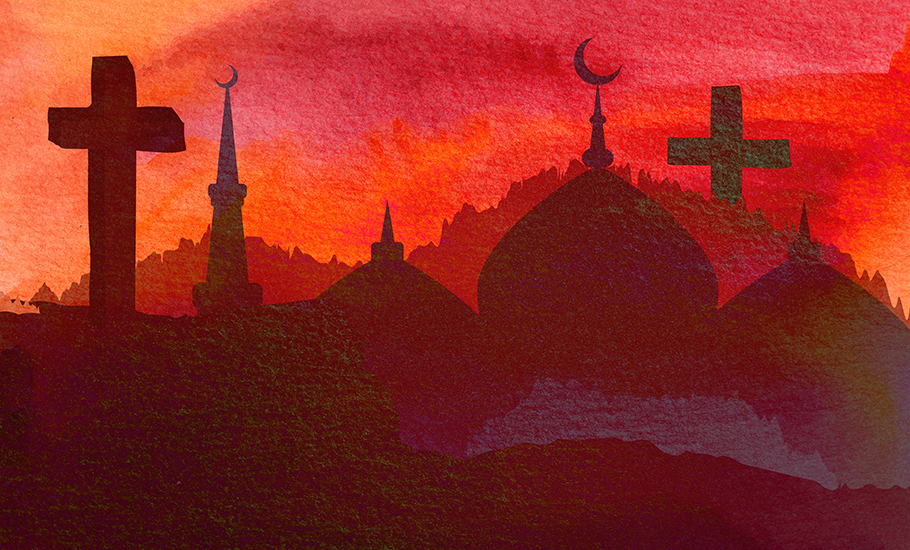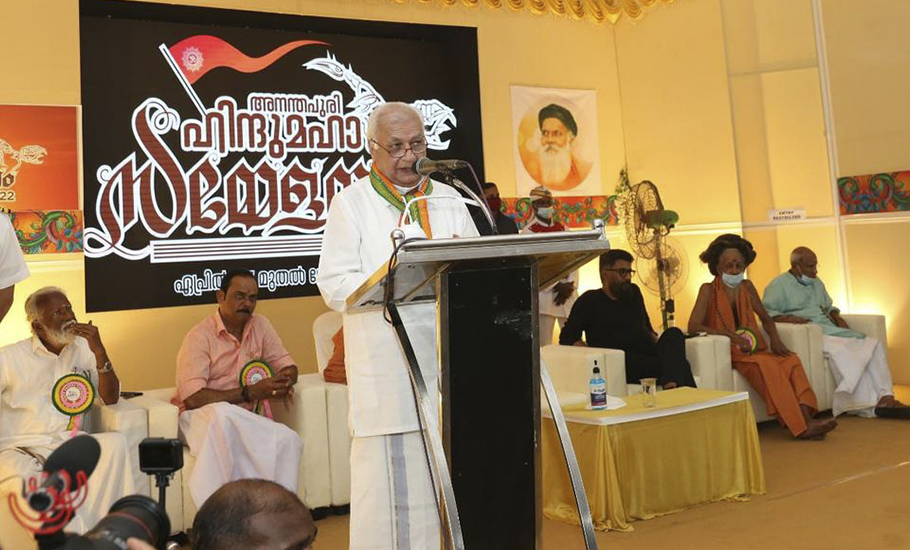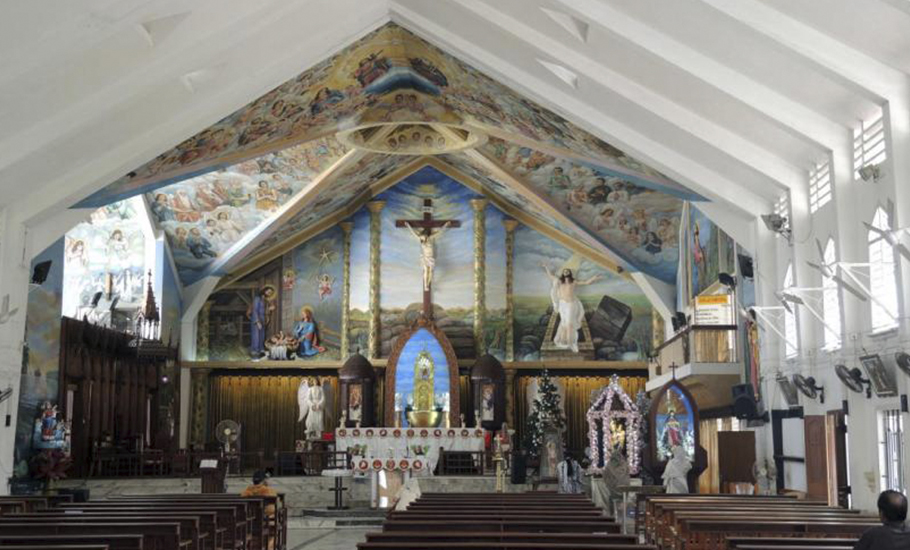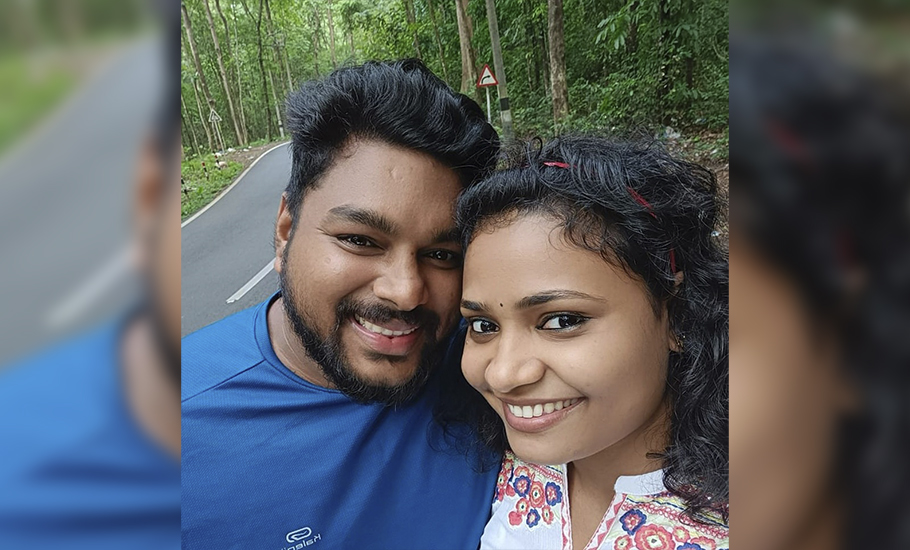
- Home
- India
- World
- Premium
- THE FEDERAL SPECIAL
- Analysis
- States
- Perspective
- Videos
- Sports
- Education
- Entertainment
- Elections
- Features
- Health
- Business
- Series
- In memoriam: Sheikh Mujibur Rahman
- Bishnoi's Men
- NEET TANGLE
- Economy Series
- Earth Day
- Kashmir’s Frozen Turbulence
- India@75
- The legend of Ramjanmabhoomi
- Liberalisation@30
- How to tame a dragon
- Celebrating biodiversity
- Farm Matters
- 50 days of solitude
- Bringing Migrants Home
- Budget 2020
- Jharkhand Votes
- The Federal Investigates
- The Federal Impact
- Vanishing Sand
- Gandhi @ 150
- Andhra Today
- Field report
- Operation Gulmarg
- Pandemic @1 Mn in India
- The Federal Year-End
- The Zero Year
- Science
- Brand studio
- Newsletter
- Elections 2024
- Events
- Home
- IndiaIndia
- World
- Analysis
- StatesStates
- PerspectivePerspective
- VideosVideos
- Sports
- Education
- Entertainment
- ElectionsElections
- Features
- Health
- BusinessBusiness
- Premium
- Loading...
Premium - Events

What's widening the Muslim-Christian wedge in Kerala

The 10th Ananthapuri Hindu Maha Sammelan held in April this year saw an unusual participant. The Christian Association and Alliance for Social Action (CASA) joined the debate on “love jihad, land jihad and halal food” at the pro-Sangh Parivar event in Kerala. Although Christians had attended the event in the past too this was apparently the first instance of a Christian outfit...
The 10th Ananthapuri Hindu Maha Sammelan held in April this year saw an unusual participant. The Christian Association and Alliance for Social Action (CASA) joined the debate on “love jihad, land jihad and halal food” at the pro-Sangh Parivar event in Kerala.
Although Christians had attended the event in the past too this was apparently the first instance of a Christian outfit participating in a Hindu Maha Sammelan.
The presence of CASA, which has been at the forefront of tapping anti-Muslim sentiments among Christians in Kerala, at the event, underlined the fact that the rift between Christians and Muslims in Kerala is only growing. Rumours, conspiracy theories and stereotypes are adding fuel to the fire fast spreading.

“Muslim men want to marry Christian women with an intention to give birth to a generation that is more intelligent,” said a young priest of the Syrian Orthodox Church at Chengannur in Alappuzha district on the condition of anonymity. The vicar does not subscribe to the narrative that Christian girls are trapped and trafficked for terrorist activities by Muslims but believes firmly that the Christian community is superior to Muslims in terms of intelligence and academic brilliance and hence Muslims want to have children with Christian women.
The wedge between the two communities, however, is a recent phenomenon in Kerala influenced by sociological, political, economic and even theological factors. The southern state has had a rich history of peaceful coexistence.
All communities in Kerala have benefitted from the missionary education that traces its roots to the 19th century.
According to Vincent Kundukulam, the two communities have had no history of conflicts.
Interestingly, Vincent, former president of the Indian Theological Association, says while there were no noticeable conflicts, the two communities barely interacted.
According to historians, proselytisation was never the primary objective of the Syrian Church in Kerala that was established in AD 52 by St Thomas, one of the 12 apostles of Jesus Christ. George Mathew in his book Communal Road to a Secular Kerala observes that the zeal to propagate religion and promote conversion became an important characteristic of Christianity in Kerala only centuries after the advent of Roman Catholicism.
What shows that the divide between the Christian and Muslim communities does not have any historical roots is that a section of Church leaders have adopted the narrative set by right wing organisations such as the Rashtriya Swayamsevak Sangh (RSS) over issues such as love jihad against the Muslims of the state.
The narrative that Christians turning against Muslims seem to be following is not very different from that adopted by the right wing which states that Muslims are trying to become a majority in the country by increasing their numbers, monopolising trade and business and buying land to assert dominance.
WhatsApp has aided the propagation of this Islamophobic narrative.
“There are hundreds of WhatsApp family, community and parish groups. These groups are being flooded with stories against Muslims such as Muslim boys trapping Christian girls for ‘love jihad’, Muslims grabbing property and jobs in the government sector, Muslims monopolising trade and business etc,” says Shyju Antony, the spokesperson of Archdiocese Movement for Transparency (AMT).
AMT, or Almaya Munnettam, as they call themselves in local language, is an organisation within the Syro Malabar Church that stands against corruption (of Bishops) and works for reformation within the community. Shyju told The Federal that they use “secularist antidotes” against the communal venom being spread through WhatsApp groups and other social media platforms.
The synod declaration
The synod (the assembly of bishops) of the Syro Malabar Church that convened in January 2020 expressed ‘serious concern’ over love jihad, under which they said, Christian girls are “being trafficked and killed”. The press note released by the church urged the government to take prompt action against love jihad to save women from being pushed into terrorist activities. The synod expressed concern over the increasing number of ‘incidents of love jihad’.
However, a section of the priests belonging to the Ernakulam-Angamaly Archdiocese (under the Syro Malabar Church) condemned the concern raised by the synod over love jihad dubbing it as a theory far removed from reality. Sathyadeepam Weekly, the mouthpiece of Ernakulam-Angamaly Archdiocese, carried articles criticising the synod. “Love jihad is a myth. The police of various states investigated the allegations and found that they all are baseless. Several courts in the country also corroborated that love jihad is something that doesn’t exist,” wrote Fr Kuriakose Mundadan of Angamaly Archdiocese in an article in Sathyadeepam shortly after the synod declaration.
“Lot of interfaith marriages happen. Men and women fall in love and marry. Do these people take the count of Christian boys marrying Hindu/Muslim girls,” Mundadan told The Federal. He claimed that the church is yielding to the right wing agenda of RSS to fend off attention from the corruption within.
Fr Paul Thelekkat, former spokesperson of the Syro Malabar Church, agrees with Fr Mundadan. “Interfaith marriage is not a new phenomenon. But the church leadership has started raking up issues like love jihad since 2017 only. This is the time around which corruption charges and criminal cases against Archbishop [George Alanchery] began to emerge,” Fr Thelekkat said, adding that the sudden attempt to demonise Muslims is part of BJP’s project to expand its base in the Christian community in Kerala.
The fact that the Syro Malabar Church is trying to join forces with the right wing became evident during the protests against the Citizenship Amendment Act (CAA) too. The synod came in for criticism after it shied away from vehemently protesting the legislation and only urging the central government ‘to act judiciously’. In doing so the synod broke ranks with other Church denominations.
“Bishop Susapakyam (the head of Latin Catholic Church) came up with strong statements against CAA, but the Syro Malabar Church took a soft stand on the same,” says Fr Kuriakose Mundadan, who belongs to the reformist section within the Church.
Hiding corruption, criminal charges
Extensive conversations The Federal had with the priests and ordinary members of the Syro Malabar Church strongly point towards a connection between the recent allegations of corruption and criminal charges against a couple of bishops and the anti-Muslim propaganda advocated by of them.
In 2017-18, a host of cases were filed against Major Archbishop Cardinal Mar George Alancherry including executing fraudulent sale deeds of the church property that caused losses to the parish. The cases were registered on the complaints filed by a couple of individuals who are members of the parish. The discharge petitions filed by the bishop were turned down by the Kerala High Court and later by the Supreme Court and he was asked to go to trial. The Enforcement Directorate is also investigating the alleged money laundering in the land deals. Many like Fr Thelekkat believe that the church leadership is trying to please BJP by making anti-Muslim statements. The BJP, which has been eyeing the Christian vote bank in the state, is only too ready to woo the community.

“You have to see the timing of such statements. All such statements, whether it be love jihad or narcotic jihad, come at crucial points during the course of the investigation,” says Fr Mundadan.
CASA: a friend of RSS
Amid the growing rift between the two communities, CASA, an organisation that was formed in 2019, has caught public attention in Kerala. The outfit has featured as the common denominator in all controversies around ‘Christian-Muslim conflicts’ triggered off in the recent past in Kerala.
CASA, formed by the coming together of a few men whose daughters married Muslim men, is known to make caustic attacks on Muslims trough it social media posts. The outfit says its objective is ‘To protect religion and nationalism’. A quick glance through their recent activities would give clarity on the organisation and vision.
Eesho, the yet to be released Malayalam film, starring Jayasurya directed by Nadirsha was one of the targets of CASA in 2021. Between August 2021 and April 2022, CASA has relentlessly attacked the film through its Facebook page. The outfit even filed a writ petition in the High Court pleading that the movie should not be allowed to be released because the film’s name ‘abuses Jesus Christ’. After the High Court turned down CASA’s petition, the organisation produced a short film named Muhammad, The POCSO Criminal. The film directed by Derin Vasco dealt with an incident that had happened in Assam’s Dibrugarh district in 1997 in which a six-year-old girl was raped and murdered by a man named Muhammad, who was a Bangladeshi national.
In an interview given to News Nine, Kevin Peter, the president of CASA said that they expected someone to go to the court against releasing the short film which did not happen. CASA says that they wanted to expose the ‘double standards’ of the society.
Since its formation CASA has been actively involved in collecting information about couples opting for interfaith marriage. They collect the information about Christian women wanting to marry Muslim men under the Special Marriage Act from the Civil Registration Office. With the information at hand, CASA members coerce parents to bring their daughters back to the family. The organisation went on making the names of interfaith couples public on Facebook exposing them to social media abuses and bullying with complete impunity.
Following a spate of such incidents, former Minister for Social Justice KK Shailaja intervened and directed authorities to refrain from publicising the names of interfaith couples.
On September 9, 2021, Pala Arch Bishop Mar Joseph Kallarangat while delivering a speech at Marth Mariam Pilgrim Church in Kottayam district alleged that Muslim youth in Kerala are engaged in ‘narcotic jihad’ and that members of other communities are the victims of the same. He said it while referring to the religious identity of the accused in recent cases of drug trafficking.
“These are all baseless allegations. The cases of drug abuse have increased in Kerala, but it has nothing to do with religion. If we check the data, we can understand that people from all religions are there on the list of accused booked for possession or sale of narcotics substances,” says Fr Paul Thelekkat.
Joseph Kallarangat was later booked under 153 A of IPC for attempting to create communal disruption. Even as all parties condemned the statement, the BJP remained silent. CASA, however, has launched a fierce campaign in support of the bishop and criticised the political parties that went against him.
CASA was also instrumental in organising a protest march of Christians over women of the community being taken away by Muslim men in a state where interfaith marriages are common. The protest came in the wake of the marriage of Shejin and Jyolsna. Shejin, a CPM activist who identifies himself as one who doesn’t follow religion, was a Muslim by birth. He eloped with Jyolsna, a Christian woman, after which her family filed a police complaint.

In Kerala, however, support for CASA from within the Christian community also is wafer thin. “It is not a secret. CASA is working as a platform for BJP to strengthen its base within the community,” said Shyju Antony, the spokesperson of AMT. Shyju alleged that CASA is supported by Hindutva organisations like the RSS.
Despite repeated requests, CASA chief Kevin Peter refused to talk to The Federal.
Meanwhile, some say the blame also lies with extremist factions of the Muslims in Kerala.
“The extremist forces within both the communities contribute to the process of furthering the divide,” says Mustafa Moulavi, an Islamlic scholar.
According to Mustafa Moulavi, the theological preaching of a section of Muslims, who follow extremist ideas, contribute to Islamophobia among Christians. “Both the communities used to coexist peacefully. But recently, a few Muslim scholars started disseminating the idea that Christianity is a religion inferior to Islam. On the other side, some Christian priests preach the idea that Islam is a primitive religion which does not suit the modern society.”
Mustafa Moulavi holds the view that the very structure of Semetic religions as Islam and Christianity is an enabling factor for Hindutva to grow. “Organised conversions done by both Muslim and Christian groups created an enabling environment for the Hindutva groups. Conversions and many such factors also create insecurity among Muslims and Christians.” says Mustafa Moulavi.
Fr Vincent Kundukulam, who has done PhD on RSS from Sorbonne University in Paris, however, thinks ‘Muslim hate’ is not confined to CASA neither is it restricted to the Syro Malabar Church. “There are followers of extremist ideas across all denominations, not only Syro Malabar Church. There was an organisation called CSS (Catholic Seva Sangh) formed in early 2000. The intention was the same as that of CASA — to ‘protect the community’. The organisation, which adopted the style of RSS, was formed among the Latin Catholics. They opted for a name similar to that of RSS. However, CSS could not grow and died down gradually,” recollects Fr Kundukulam.
According to Fr Kundukulam, the Christians in Kerala pioneered all others in terms of migration for education and better employment. “Since the migration to the Gulf countries started, Christians also reaped the benefit of the same. But later the members of the community started exploring the educational opportunities in European countries,” says Fr Kundukulam.
The migration of professionally qualified trained nurses also played a significant role in the economic and social empowerment of the Christian community in Kerala. “The Christians walked a generation ahead. They migrated to Europe, Australia, Canada and USA leaving their properties behind. Their next generation did not want to come back and to claim the land and properties left by their parents. Hence, a large number of Christians sold out their properties to Muslims who had earned money by migration,” says Fr Paul Thelekkat.
The Muslims who bought land and gained financial empowerment by working overseas, prospered in trades and businesses. “This catalysed insecurity among the Christians, in fact, Muslims are still socially backward compared to Christians who gained the benefit of foreign education. They don’t want to stay back in Kerala to run small businesses,” says Fr Thelekkat.
According to Fr Thelekkat, Muslims buying land from Christians and Muslims running businesses and trade was wrongly perceived as a sign of the community overpowering Christians. “The Hindu right wing groups played a role in spreading canards and such false narratives. The Christians swallowed such stories without thinking critically,” Fr Thelekkat told The Federal.
